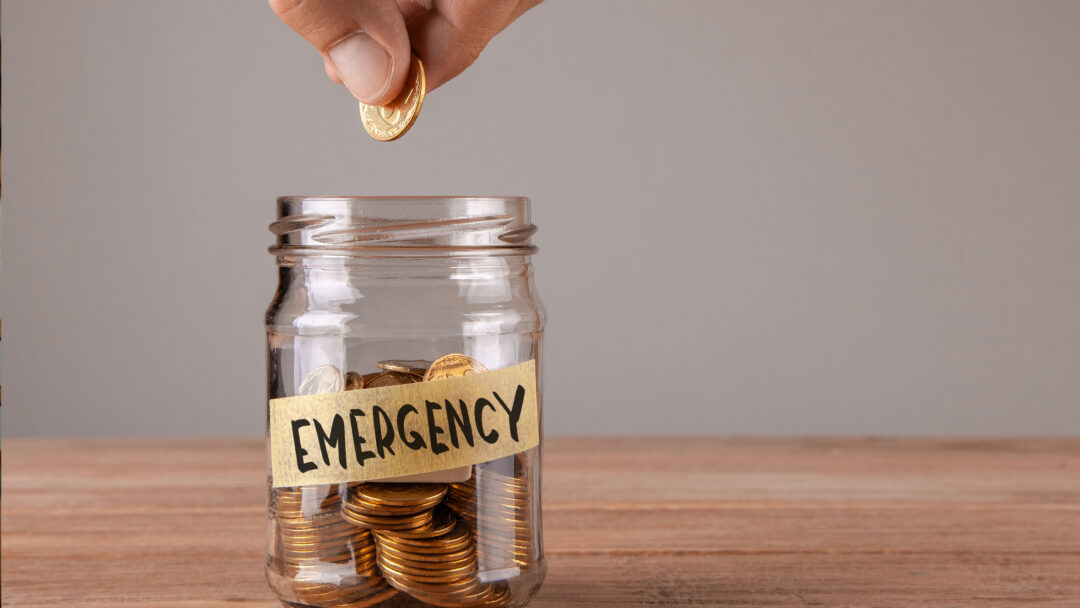National Debt Relief Top FAQs
- No Upfront Fees: National Debt Relief only charges fees after settling your debt, typically up to 25% of the enrolled amount.
- Credit Impact: Debt settlement may impact credit scores negatively.
- Debt Relief vs. Consolidation: Debt relief reduces your balance through negotiations, while consolidation combines all debts into a single loan, usually requiring good credit.
- Program Duration: Clients generally complete the debt relief program in 24-48 months, depending on how quickly they save funds for settlements.
- Eligible Debts: Relief covers unsecured debts, such as credit cards, personal loans, and certain student loans, and all funds are held in an FDIC-insured account until settlement.
To help you gain a better understanding of what to expect, take a look at answers to some of our more commonly asked questions.
National Debt Relief is one of the country’s largest and most reputable debt relief companies. We’re proud to have an A+ rating with the Better Business Bureau (BBB) – and thousands of positive client reviews. We’ve earned our excellent reputation by negotiating with creditors on behalf of a multitude of clients to settle their outstanding debts. By graduating from our program, many of our clients experience the financial independence they never thought they’d find. To help you gain a better understanding of what to expect, take a look at answers to some of our more commonly asked questions.
Free Consultation with a Certified Debt Specialist
Start with a Free No-Obligation Consultation
To help you gain a better understanding of what to expect, take a look at answers to some of our more commonly asked questions.
National Debt Relief is one of the country’s largest and most reputable debt relief companies. We’re proud to have an A+ rating with the Better Business Bureau (BBB) – and thousands of positive client reviews. We’ve earned our excellent reputation by negotiating with creditors on behalf of a multitude of clients to settle their outstanding debts. By graduating from our program, many of our clients experience the financial independence they never thought they’d find. To help you gain a better understanding of what to expect, take a look at answers to some of our more commonly asked questions.


Let us Answer all your Questions in a Free Consultation!
What will your service cost me?
At National Debt Relief we do not earn anything unless we get you results. Specifically, 3 things must happen for a fee to be earned for the service. First, a settlement offer must be received from the creditor, we must receive your approval of the settlement, and finally at least 1 settlement payment to the creditor must be made. Only then would our fee be earned and charged to your Dedicated Account. Once debts are settled, the average client usually pays a fee of up to 25% of the total debt enrolled But, until these 3 things occur, there is no fee for the service.
Will your program impact my credit score?
Depending on your personal situation and whether you have already missed payments to your creditors, debt settlement programs may have a negative impact on your credit score. Due to it being a separately regulated service, we do not provide credit repair services or offer advice on ways to improve your credit.
What’s the difference between Debt Relief and Debt Consolidation?
Debt relief reduces your balance. Your debt is negotiated down, and you pay less than you owe. The creditor forgives the remaining balance in a transaction called a settlement. Debt consolidation combines all of your debt into one loan with a single monthly payment, often at a reduced rate of interest. This typically requires a higher credit score for approval.
Can I Negotiate With My Creditors On My Own?
Even though a do-it-yourself (DIY) approach might be a good option for home renovation projects and other hobbies, you shouldn’t take any risks with your debt repayment plan. Your financial situation has a long-lasting impact on your lifestyle and peace of mind. At National Debt Relief, we take care of every detail of debt negotiations – helping you overcome the most significant roadblocks that are standing in the way of your financial independence. We have established relationships with over 10,000 creditors and our average negotiation rate is 45%, meaning you usually pay 45% less than you owe. Our negotiators know exactly what to say to help each company look for solutions that support your needs — and how much you can expect to save with each creditor. We won’t stop until we’ve reached the best deal possible.
How Long Will It Take To Get Out Of Debt?
It depends on how quickly you can build up your funds and save for the settlement offers. The faster you save, the quicker you get out of debt. It typically takes between 24-48 months with our program. By contrast, if you only make the minimum payments on your credit cards, you could be in debt for the next 10-20 years and pay back 2x, 3x, or even 4x as much as you originally borrowed.
Will I Get Sued By My Creditors?
There is a slight possibility that a creditor might sue you. But, lawsuits are expensive and creditors try to avoid them. We aim to complete the program as quickly as possible to avoid any lawsuits.
Can I Continue To Use My Credit Cards?
No, you won’t be able to use your credit cards that are enrolled in the program. Plus, creditors will usually close your accounts after you’ve missed a few payments. Your debt expert will help you decide the best plan of action based on your current financial situation.
Will I Have To Pay Taxes On The Forgiven Debt?
That depends. Your creditors will issue you a 1099-C form for any debt forgiven over $600. The forgiven debt counts as income. But, if you are insolvent (you have more liabilities than assets) at the time we settle with your creditors, you may not have to pay any taxes on the forgiven debt.
“A taxpayer is insolvent when his or her total liabilities exceed his or her total assets. The forgiven debt may be excluded as income under the ‘insolvency’ exclusion. Normally, a taxpayer is not required to include forgiven debts in income to the extent that the taxpayer is insolvent.” – IRS.gov
It’s best to speak with a CPA or tax professional for help with this.
What is your track record?
Since 2009, we’ve successfully helped hundreds of thousands of people get out of debt. We are one of the country’s largest debt relief companies and pride ourselves on our accreditations which include:
- A+ rating with the BBB
- Over 75,000 five-star reviews of the National Debt Relief program across top review sites
- A team of debt arbitrators certified through the IAPDA (International Association of Professional Debt Arbitrators)
Do You Offer A Satisfaction Guarantee?
Yes! In following the requirements of federal law, we do not complete a settlement unless you approve it. Moreover, we do not collect a fee associated with our efforts to settle a particular debt until you have approved that settlement and made at least one payment. If we can’t settle your debt or if you’re not satisfied up to the point of us settling your debts — for any reason — you can cancel anytime without any penalties or fees other than any fees earned associated with prior settled debts. That’s right! We get results or you don’t pay.
What Makes Me a Good Candidate for Debt Relief?
National Debt Relief’s program is a great choice for people with high levels of unsecured debt who are struggling with financial hardship, like a divorce or job loss. If you’re barely keeping up with your minimum payments and the balances on your accounts keep growing, then our program may be right for you. Why fight a losing battle against rising debt, when our debt relief services can help?
How Is Debt Relief Different From Bankruptcy?
We are not attorneys and cannot provide legal advice. But based on publicly available information online, bankruptcy is generally seen as a last resort and can come with harsh consequences. It may impact your credit score for up to 10 years, which means it could take a long time to recover. You can be denied employment, state licenses, insurance – even occupancy of an apartment. Plus, there’s a risk that major assets could be seized, causing you to lose personal property.
Debt relief is the process of negotiating outstanding debts, using a combination of debt forgiveness and a reasonable payment plan to help you become debt-free. Our program can help you realize a significant reduction in the amount you owe, cost you a lower monthly payment, and have your enrolled debt paid off in as little as 24-48 months. And while our program could have a negative impact on your credit score, bankruptcies can legally be reported for a longer period of time.
Should I Keep Paying My Credit Card Bills?
You’ll need to make a conscious decision to stop monthly payments to your creditors, since they won’t negotiate a reduced principal balance if you’re current. This helps establish a legitimate financial hardship for the creditors, giving you the opportunity to participate in this savings program.
Who Is Holding My Money While I’m Waiting On A Settlement?
Your money will be held in an FDIC-insured trust account. The account will be opened in your name, and you’ll have ultimate control over its funds. The money saved gets disbursed only at the time an agreement is reached with the creditor and you approve the settlement offer.
How Much Will I Save?
National Debt Relief programs can save you, in the words of former client Michael D., “thousands upon thousands” of dollars! After all, settling your debt means that the interest and fees you’re currently incurring on credit cards and other debts each month will stop accumulating. That will free up hundreds (if not thousands) of dollars for you to use to pay other bills, purchase a home, or prepare for retirement. And, the fees we charge clients for our program are more than reasonable. Clients who stay with the program and get all their debt settled realize approximate savings of 45%.
Is Debt Relief Really Worth It?
Yes! If you’re living paycheck-to-paycheck, carrying high balances on your credit cards, and struggling to make the minimum payments, you’re dealing with unnecessary stress that can affect both you and those close to you. When you enroll in our program, not only will we negotiate down your debt and help you get on top of your finances, but you’ll also find yourself free of the stress, guilt, and worry that comes with overwhelming debt. That means you’ll have time to focus on what really matters: family, career, and enjoying life to the fullest.
What Types of Debt Does National Debt Relief Work With?
We cover most unsecured debt* and negotiate with major credit card issuers and banks every day to reduce debts. Some of the debts that we can help you settle include:
- Credit Cards
- Personal Loans
- Lines of Credit
- Medical Bills
- Collections
- Repossessions
- Business Debts
- Certain Student Debts
*Unsecured debt is any debt that isn’t tied to an asset like a home or automobile. It creates fewer problems for consumers because they don’t stand to lose an asset if they don’t repay the debt. If you fall behind on payments for unsecured debts, your lenders have no claim on your property and can’t repossess items or foreclose on your home. But, they can file a lawsuit against you.
If you’re unsure about whether your debt would qualify, feel free to call us.
All You Need To Know
We’ve put all of our essential resources in one spot. Everything from debt resolution to taking control of your financial future . Need to talk? Our experts are here to help. Call us anytime for a free no-obligation consultation.
Pay off your credit card debt
- Receive A Free Savings Estimate Today
- See How Quickly You Can Be Debt Free
- No Fees Until Your Accounts Are Settled
Essential Reading
The latest debt relief news, tips, and resources from our team.
We have helped over 1.2 million people toward a brighter future.

Now I wake up knowing that I am paying off my debt, it’s like a weight lifted off my chest and I can breathe a bit more.

“The anxiety is gone, I am credit card debt-free. And that right there, I never thought I would be able to say those words, and it just feels so good.”
Michelle saved 23% on her debt

Now I’m able to go on vacation for the first time in a long time- I was able to go and relax. I couldn’t do that before.







